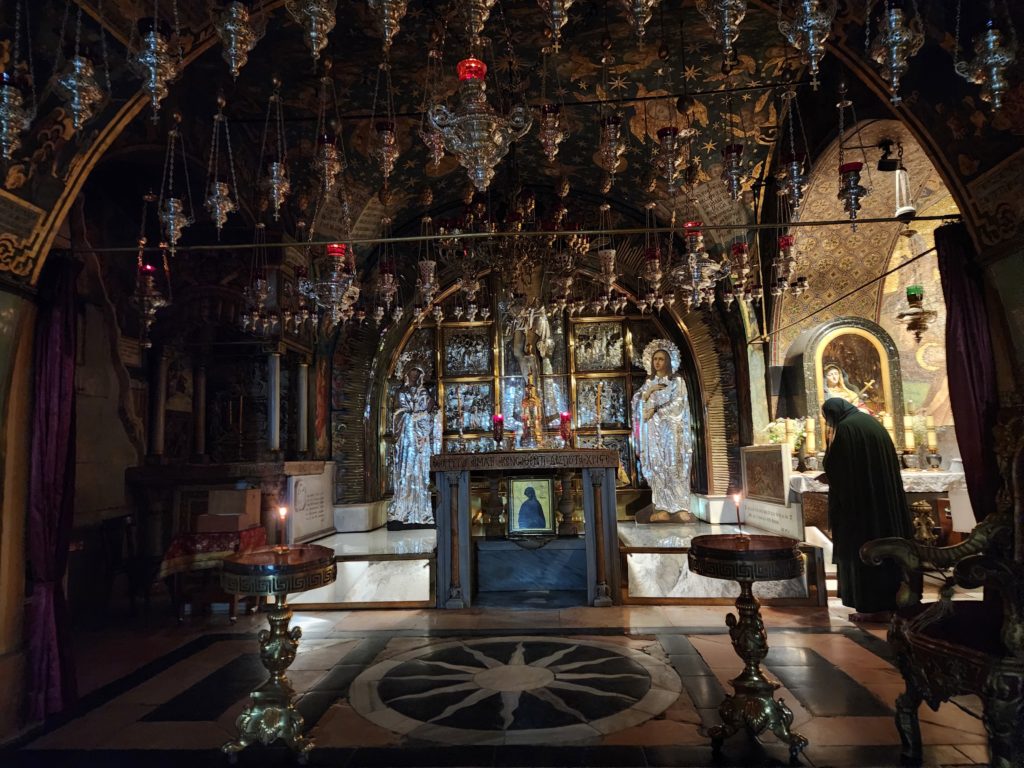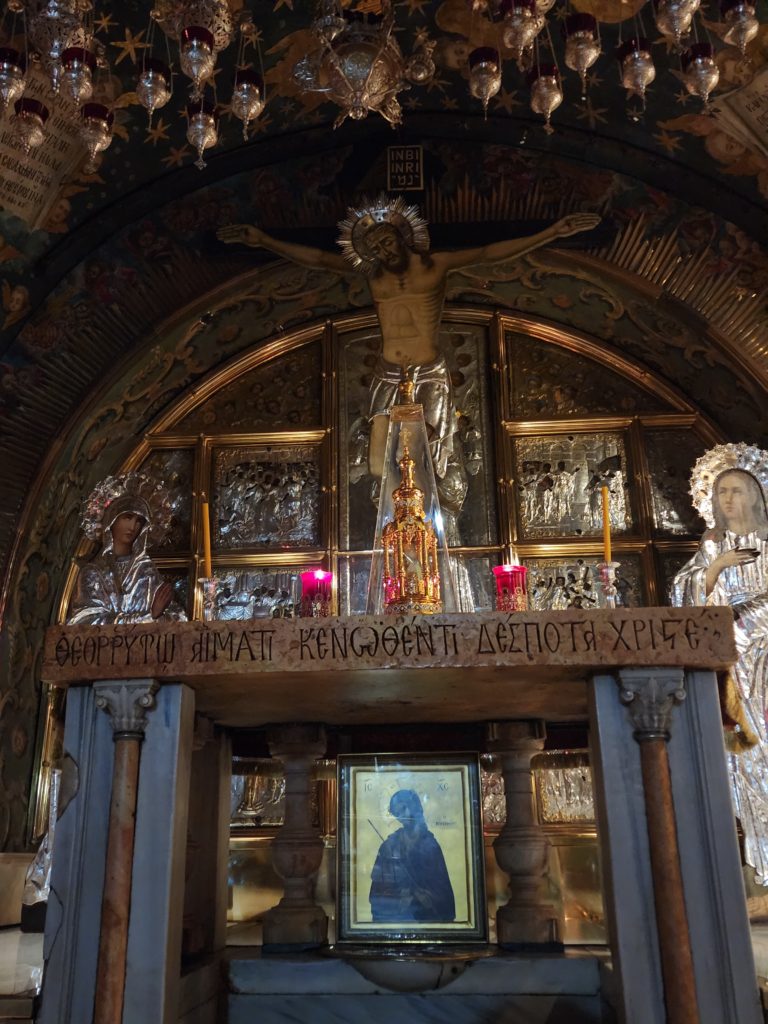Golgotha is the site where Jesus Christ was crucified, according to the Bible. It is also known as Calvary, which means “skull” in Latin, and is referred to as such in the Latin translation of the Bible. The term “Golgotha” is actually derived from the Greek word “γολγοθᾶ”, which also means “skull.”
Every Tuesday and Thursday night, Orthodox Christians come together and practice the tradition of serving holy Liturgies on Golgotha. These two days are chosen because Orthodox Christians fast on Wednesdays and Fridays—the two days that remind us of Jesus’ Crucifixion. This tradition is seen as a way of honoring Jesus and His crucifixion, and the Liturgies served during this time are a powerful way to experience His presence. It is not just a spiritual practice, but also a uniquely meaningful event that connects us to our Lord and strengthens the eternal bond between us.
The Passion of Jesus refers to the accounts of the suffering and death of Jesus as recorded in the Gospels of Matthew, Mark, Luke, and John in the New Testament. These accounts describe the events leading up to Jesus’ arrest, trial, and execution by crucifixion on Golgotha. They also describe the resurrection of Jesus and his appearances to his disciples after his death. The Passion Narrative is a central part of Christian belief and is remembered and celebrated in various ways, including through liturgies and other religious ceremonies.


